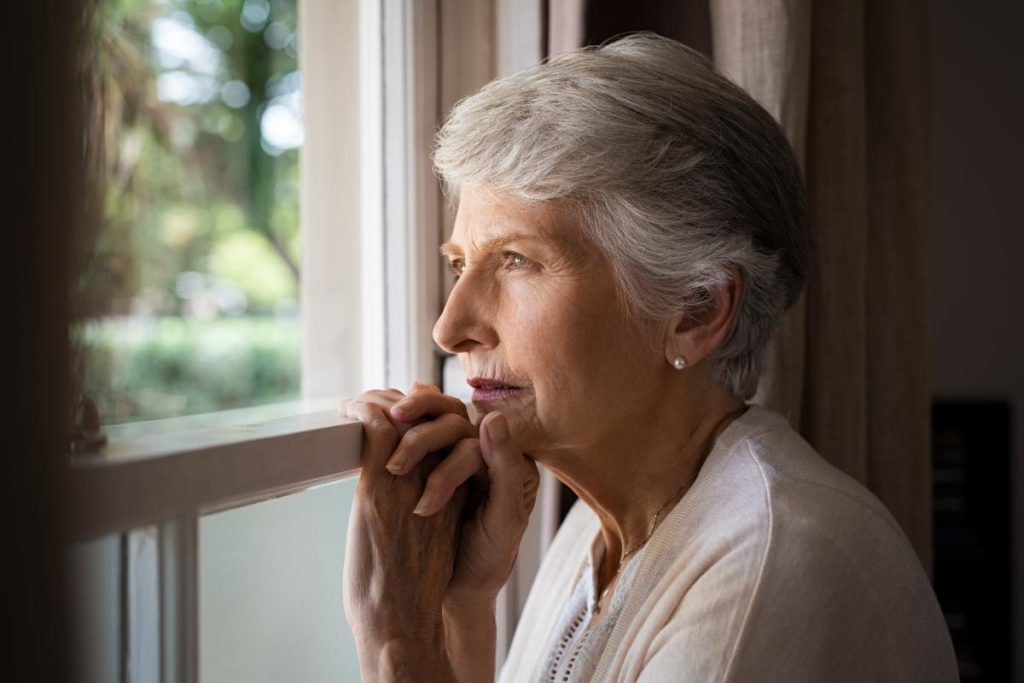Anxiety is a common concern for people of all ages. But as you get older, the frequency of anxious feelings may increase. This helps explain why seniors often have heightened risks for mental health issues called anxiety disorders. You can help protect yourself from these disorders by taking measures to manage your anxiety. A range of management methods is available. Timely use of them will provide extra support for your general health and wellness.
If your senior loved one is struggling with anxiety, reach out to Parkway Place at 281.305.1846 for more helpful advice.
Seniors and Anxiety – Understanding the Elevated Risk
Why are seniors more susceptible to anxiousness as they grow older? The exact answer to this question may vary from situation to situation. However, it’s well-known that older adults often face sources of anxiety that are less common among younger people. Examples of these sources include:
- Increased social isolation
- Fear of significant health issues
- Actual declining health
- Concerns over how to pay for medical care and daily living expenses
- Grief over the loss of friends and loved ones
In addition, many seniors feel anxious about their increased reliance on others.
Managing Anxiety in Seniors
There is so much seniors can do to manage any anxiety they may have, including staying physically active with exercise or activities, having enriching hobbies, and staying socially active by seeing friends and family regularly, among many other things.
Staying Physically Active
Research clearly shows that regular physical activity can help you feel less stressed and anxious. Unfortunately, many seniors don’t make this kind of activity part of their everyday routine. The good news is that, regardless of your condition, you can likely find options that work for you.
Exercises and activities often recommended for seniors include walking and yoga or modified chair yoga. They also include dancing, swimming, water aerobics, and bodyweight strength training.
Always consult your doctor before undertaking a new activity. Depending on your health, some options may be more suitable than others. Your doctor can help you create a safe, effective activity plan.
Having a Hobby
Relaxing hobbies are often a great way to manage anxiety. Seniors looking to relax often read or listen to music. In addition, many older adults take up gardening. Creative endeavors such as coloring, painting, and drawing are frequently used options. You may also have other preferred hobbies that help you keep feelings of anxiousness under control.
Staying Socially Active
An active social life can help you combat anxiety caused by isolation and loneliness. Your social calendar may include in-person visits with friends and family. It may also include regular phone calls and video chats.
As a rule, a vibrant local community helps you stay socially engaged. It does so, in part, by offering many opportunities to socialize with your neighbors. It may also provide you with a range of recreational activities designed with seniors in mind.
Other Ways to Cope With Anxiety in Seniors
Seniors can also do several other things to help reduce feelings of anxiousness. One option is practicing stress management techniques. Common examples of these techniques include meditation and deep breathing. It’s also important to get plenty of sleep, eat well and limit your caffeine intake.
Be aware that personal anxiety management efforts don’t always work. If you still feel overwhelmed, you may need the specialized support of mental health professionals. There are many effective therapies and medications for treating and managing anxiety symptoms.
Learn More About Managing Anxiety in Senior Citizens at Parkway Place
Need more advice on managing anxiety in seniors? Talk to your doctor or a local mental health expert. You can also speak with the professionals at Parkway Place. We’re standing by with helpful tips on how to cope with anxiousness.
Parkway Place is also your source for supportive, compassionate senior living. No matter your situation, you’ll find a full slate of activities and services. We’re committed to helping you stay healthy and well in your retirement years. For more information, just call us today at 281.305.1846 or contact us through our online form.

